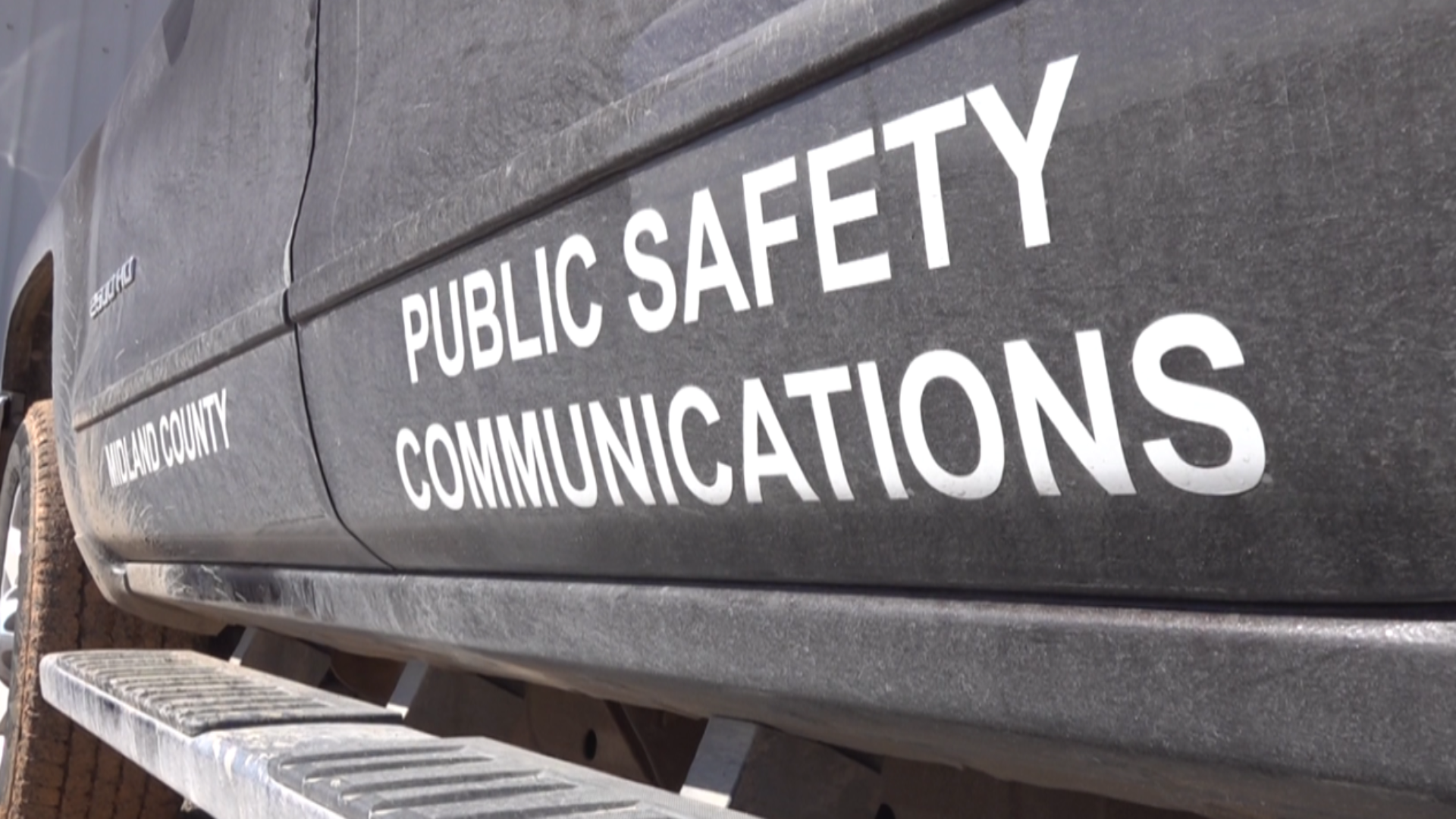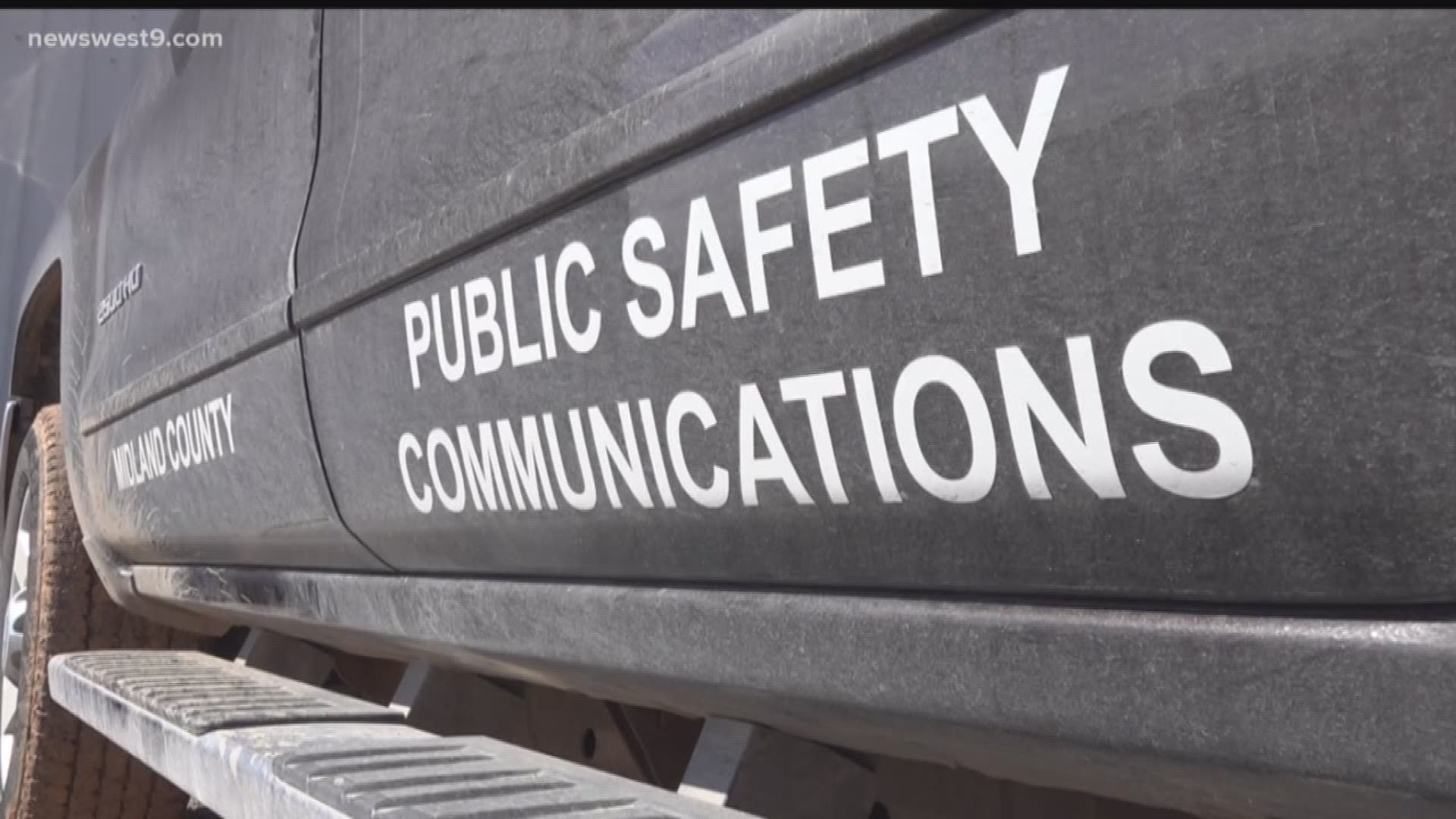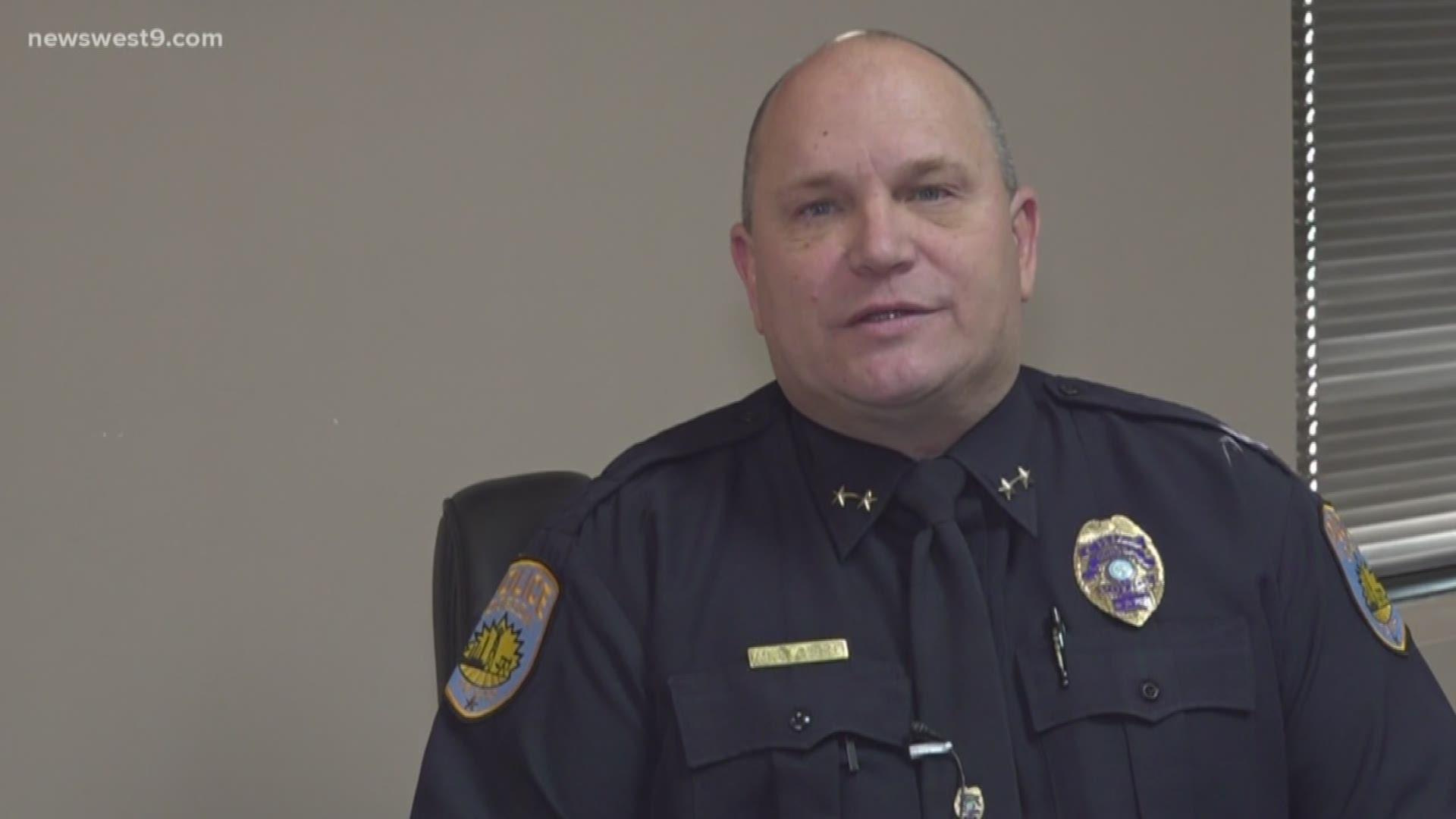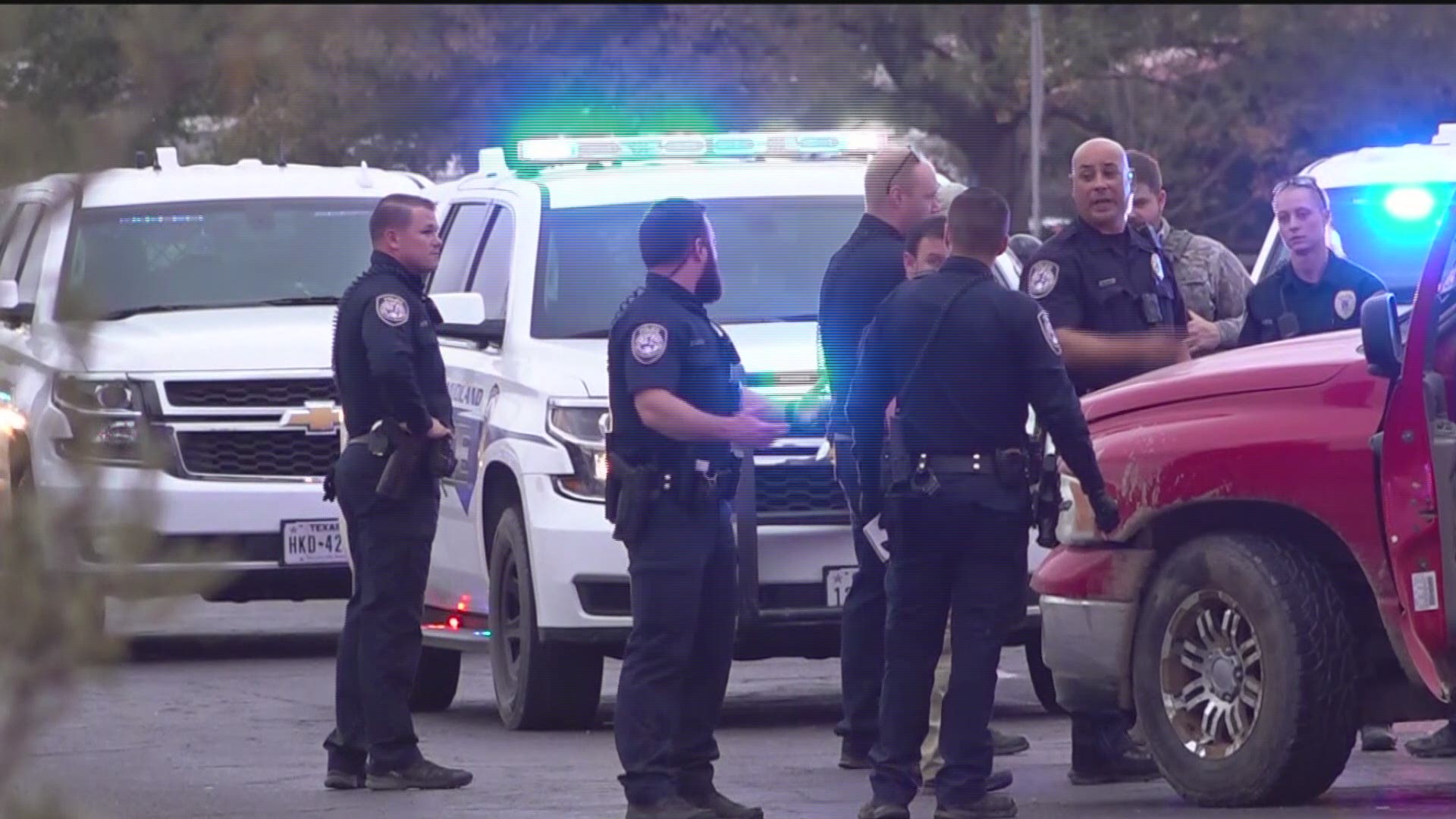Communication breakdown: What authorities learned during the mobile mass shooting
On Aug. 31, 2019 a lack of communication left police departments, sheriff's offices, and DPS scrambling. Now they are working to keep that from happening again.

Part 1 What law enforcement learned
It is hard to believe it has been nearly six months since a mobile mass shooting changed our lives forever.
Reflecting back on that fateful day a gunman drove through Midland and Odessa randomly shooting innocent victims is difficult.
Aug. 31 changed the Permian Basin forever and no one knows that better than law enforcement.
“Things were moving so quickly, changing so rapidly,” Michael Gerke, Odessa Police Chief, said. “Information was coming in here, then it was happening there, in retrospect these incidents were all coming in around the same time.”
In all, there were over 25 crime scenes in both Midland and Ector County as the gunman kept moving. With phone call after phone call, West Texans called in to give help or get help from emergency workers.
“You had one individual that was mobile and that’s an unprecedented event," Ricky George, Ector County and Odessa emergency manager, said. "You’re getting 911 calls that are just being flooded and people are saying bits and pieces."
At the time, it was unknown if all the events were related.
With only knowing bits and pieces on the situation, the Basin’s police departments, sheriff’s offices and Department of Public Safety were struggling to communicate amongst one another because the shooter was not just in one location.
“It’s not a one size fits, all it was-the shooting was such a different situation it was not somebody going into a store or a building like we’ve seen in the past, it was a mobile threat so that was a little bit different,” Devin Sanchez, city of Odessa, public information officer, said.
It was different for MPD because the shooter drove out of their jurisdiction and across county line, leaving little to no radio communication between Midland and Odessa.
“Dealing with outside entities especially outside of Midland County, to include state agencies and Ector County and OPD--we had already ventured into an inoperable radio wise prior to this incident and obviously the active shooter spurred that along even further,” Seth Herman, Chief of Midland Police, said.
As officers tried communicating with each other over radio channels, the lines got so flooded that passing information along internally created even more barriers.
“We need to be able to talk amongst ourselves a lot better within our department,” Dwayne Frantz, former Public Communication Radio Manager, Midland County Sheriff’s Office, said. “We need to be able to get information in and out to dispatch not only to ourselves but also to others too, we need to be able to talk around.”
Without a way to communicate with one another on portable radios, it made it harder to warn the public with a clear message about how to stay safe.
“How do you relay all of those and craft a message telling entire public?" said George. “I think you have to be very cautious than that because he might create more panic because like you said, law-enforcement themselves didn’t know if these events were related. The individual changed vehicles so I mean me and then you have to actually have a person who have to compile all that information.”
On Aug. 31 local governments and law enforcement agencies relied heavily on social media and Nextdoor.
This left some of the public frustrated they didn’t get another type of notification on what was happening.
“People are frustrated and they’re hurt; I mean it’s a major event that hit our community and a lot of times after major events people are wanting to blame," said George.
Many citizens of both cities were left asking why they were left in the dark.
“I believe citizens and taxpayers are justified in saying anything they want to say because that’s who we serve, so if there’s any criticism sure I mean I won’t ever say people can’t criticize us,” said Gerke. “I mean that’s okay I think when you look at the bigger picture and when you don’t operate with those agencies on a daily basis, weekly basis or even a monthly basis that it’s difficult to build those relationships.”
It is a massive undertaking communicating with a multi-pronged approach to hundreds of thousands of people and multiple law enforcement agencies.
“We are becoming a metroplex at this point and understanding that West Texas is still so isolated from the rest of the state so we have to work together," Herman said. “We have to work in a combined effort as a combined team, we have to share information and share our operation responsibility not only with the local agencies but also with the state and federal.”
Changes are coming to the Basin and for the Midland and Odessa police chiefs.
It is well worth the effort if it means keeping our community safe and more informed. In the next part of the story, we will walk you through the steps the two cities are taking to work together after the mass shooting.
Part 2 Two cities working together
Patrolling the streets of any road in the Permian Basin is not what it used to be.
”I think this entire region has to understand that this entire region has this idea that we’re still a small town, and maybe we’re not anymore,” said Gerke. “I think we have moved away from that and we are experiencing some big-city problems and we have to wrap our head around that.”
From the mass shooting, to school threats, the serial shooter, the countless car chases, officer-involved shootings, Odessa and Midland are two different cities, but more often than not they fight the same battles.
“As Ector County and Midland County become larger and expand, we as law-enforcement entities are no longer relegated onto ourselves,” said Herman. “We are now having to become one team."
Herman says this happened before the shooting.
Something that will make communication easier is portable radios, a resource that was severely lacking during the mass shooting.
“It all comes down to everybody needing to talk and get information in and out,” said Frantz. “That’s critical to the situation whether a lost child, a shooting, a train wreck, a car wreck...without communication you’re dead in water.”
Towers in remote locations of Midland and Ector County are helping connect different law enforcement agencies.
Though the wires, boards and switches may look a tangled mess, the towers are the newest way emergency communication is being facilitated. The messages coming through could eventually save lives.
“There’s a lot of people that are coming to the table," Frantz said. "It showed us where we were and where we need to be, we’re trying to be get to where we need to be."
Steve LeSueur, with OPD knows all too well how a quick response with another officer can mean life or death.
He worked the night of the mobile mass shooting and during that time had only one channel of audio to communicate with MPD.
”If you think about it you had one channel at that time that close to 400 law-enforcement agents would be speaking on,” said Herman. “It’s impossible to relay appropriate information."
Additional channels of audio would give lawmen and dispatch operators more options to help.
And when it comes to investigative work, soon Midland and Odessa will be able to automatically share police reports between one another.
“Our detectives who are searching for a suspect will be able to populate information from Odessa Police Department’s information system,” said Herman. “This is a huge thing for law-enforcement in this area."
Herman believes sharing communication in an instantaneous format will aid the police departments in catching criminals faster. But the software is not free.
Gerke does not care though, he thinks the investment is worth every penny.
“With technology changing as rapidly as it is, you have to absolutely find the funds to invest in those technologies," Gerke said.
It is an investment to keep moving forward and preparing for the future, keeping you and your family safe.
There is no official price tag on all of the technology that is currently in place or being considered for the future because much of the work that is taking place is coming from many different sources.
However, we can tell you that everyone involved is looking for options to get grants and other assistance to help pay for the upgrades.
Part 3 Keeping the community safe
When there are emergencies, information is not just a need, it is an expectation.
“Our citizens deserve to be communicated with efficiently, our city owes that to them because they are boss”, Sanchez said.
It does not matter if it is a man-made disaster like a mass shooting or a natural disaster like a winter storm.
“A notification pipeline is essential,” Herman said.
During emergencies, Midland and Odessa public information officers have a big job-keeping people safe.
“We are the filter from first responders to the public, so we have to narrow down the details and the exact information that the public needs to be aware of," said Erin Bailey, the City of Midland's public information officer.
"We need to take everything that we’re hearing and get it down to one consistent message and put that out in a way that’s easiest for the public to understand."
Most city information that is being released right now requires the public to find it themselves.
"We are used to having everything instantly at our fingertips," Bailey said. "We try to do everything through social media on our Twitter, Facebook, Instagram, NextDoor."
Bailey says that is where they post the most up-to-date information.
At the time of the mass shooting, Sanchez and Bailey had only been public information officers for a few months.
It was baptism by fire.
“We're more cognizant of just how important it is, just how much the residents rely on us to tell them what is going on,” Sanchez said.
In the months following the shooting, the City of Midland and Odessa got flack for not using a mass notification system that taxpayer money pays for called Everbridge.
Everbridge is a software that can send an alert to your phone and email during emergencies.
“I don’t know if we would have been successful using it at that time, we don’t know because we didn’t use it. But when different situations arise we will use EverBridge," Sanchez said.
In order for the Everbridge system to be effective in the future, you have to sign up for it to receive notices.
Midland already has the Everbridge notification system in place, except they want more residents to sign up. As of now, only 2,336 people are signed up for it.
Odessa will make their Everbridge notification system public in a few months.
“Make sure you download the Everbridge app," Bailey said. "Those are the place these emergency alerts are going to come from and that’s how they can stay informed," Bailey said.
Staying informed is not just up to law enforcement and local government, it is up to you as well.
MORE ON THE MOBILE MASS SHOOTING:




